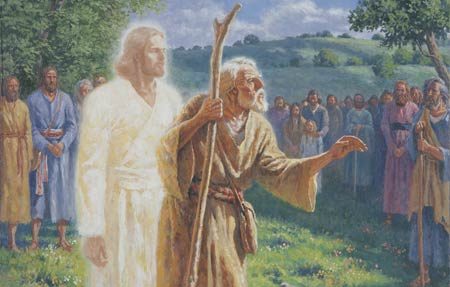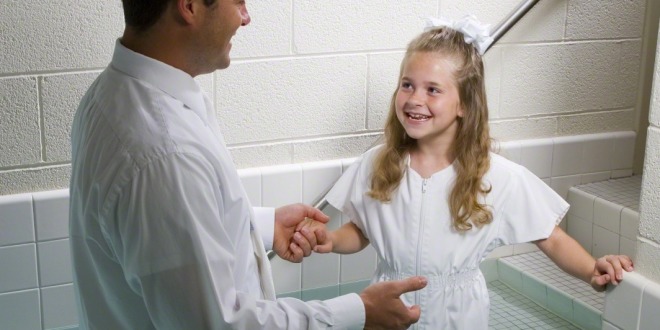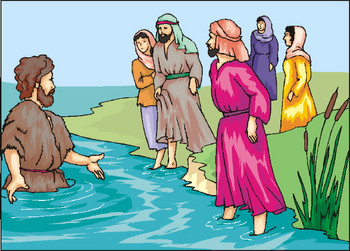Question
Gramps,
Comment on baptism for the dead. No documents of the early Christian congregation testify to the practice of baptism for the dead. The Bible principle is clearly stated: each person is answerable for his/her own deeds. Who are the dead one must be baptized for? Are they this one’s parents, grandparents, other relatives, friends, etc.. who died before? How deep into history should the one baptized for the dead go? Different Bible translations offer different translations of 1 Cor 15:29. The apostle Paul used the Greek preposition “hyper” followed by a noun in the genitive case. Among the meanings of this preposition with the genitive case given by various Greek authorities are”for”, “in behalf of”, “FOR THE PURPOSE OF”. (See Liddel and Scott Greek-English Lexicon, and others). Undoubtedly, the apostle Paul used “hyper” in this last meaning, that is, “for the purpose of”. The first-century Christians were baptized not for the dead, but “FOR the PURPOSE OF BEING DEAD ONES”, with their life course to lead to a sacrificial death of integrity. The context of Paul’s other letters (Romans 6:3; Colossians 2:12) confirms this. So no baptism for the dead was ever practiced by the first-century Christians.
Tiko
Answer
Dear Tiko,
First let’s look at your interpretation of the Greek terms translated as “for” in English. Among the various meanings of the term, you select “for the purpose of” because of course it complies with your own interpretation of the passage. However, others, well versed in both Greek and theology, would take issue with you. Let me quote from the footnote to 1 Cor. 15:29 from an official Catholic Bible, translated into Spanish from the original Hebrew and Greek.
Texto oscuro y diversamente interpretado. Los corintios se baustizaban por los muertos que no lo habian sido, esperando, al parecer, haberlos participantes de las esperanzas cristianas resumidas en la resurrección gloriosa.
(An obscure and diversely interpreted text. The Corinthians were baptized for the dead who had not been baptized, hoping, it seems, that they would thus be participants in the Christian hopes that are associated with the glorious resurrection).
The Catholic interpretation clearly accepts the concept that the baptism was indeed a vicarious baptism, performed in the place of, or in behalf of the deceased persons.
The concept of vicarious baptism in no way counters the concept that each person is responsible for his/her own deeds. The rite of baptism is the sign of a covenant of obedience that the repentant person makes with the Lord as he becomes a member of Christ’s church. In the case of vicarious baptisms, that covenant is made by the deceased person in the spirit world if he/she is of a mind to accept it, not by the baptized proxy.
You state that there are no documents of the early Christian congregation testifying to the practice of baptism for the dead. It is a historical fact that baptism for the dead was a common practice of the Christian churches for over three centuries following the formation of the primitive church. As a matter of fact, as apostate Christianity had lost the meaning of this sacred practice, it was officially banned as a Christian doctrine at the Council of Carthage held in August of the year 397 AD.
You ask “How deep into history should the one baptized for the dead go?” Baptism is an essential ordinance of the gospel of Jesus Christ. It is the one and only door into the kingdom of God. Therefore it should be available to all of God’s children who desire to come to him. Paul’s reference to baptism for the dead in 1 Cor. is not an attempt at justifying the doctrine, but rather Paul uses it as an established fact to prove that there is a resurrection. In other words he is asking, “What would be the reason for vicarious baptisms if the dead rise not at all–or if there were no resurrection?” Anyone who believes that baptism is an essential ordinance and does not believe in baptism for the dead, would have a very difficult time demonstrating the justice of God. Such persons would have to conclude that baptism in not an essential ordinance because, through no fault of their own, a large part of humanity pass through mortality without the opportunity to even hear about the gospel of Jesus Christ. How could God be just by condemning those that were born in times and places when and where they had no opportunity to know of the laws of God? So it is incumbent upon us to search out our ancestors as far back as records will take us, and present their names in the holy temples where proxy baptisms for the dead are to be conducted.
The Lord has made provision for this essential ordinance to be accepted by all the human family who have the disposition to be obedient to the laws of God. This is one of the great purposes of the Millennium. During this thousand year period, temples will dot the earth, and persons from all generations following Adam will be able to come forth, identify themselves, hear the good news of the gospel and partake vicariously in its ordinances. As recorded by Peter in 1 Peter 4:6
For for this cause was the gospel preached also to them that are dead, that they might be judged according to men in the flesh, but live according to God in the spirit.
Gramps







